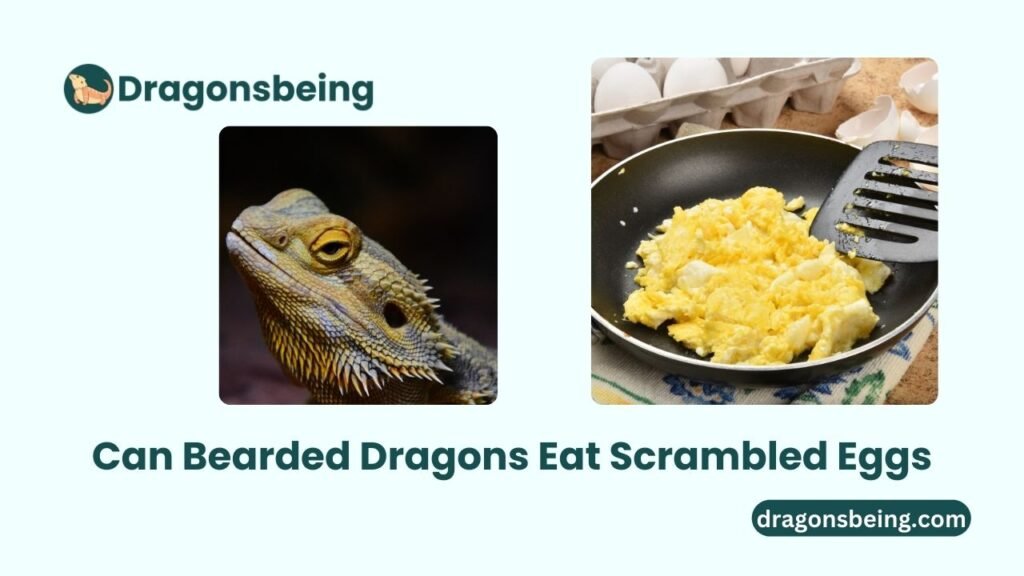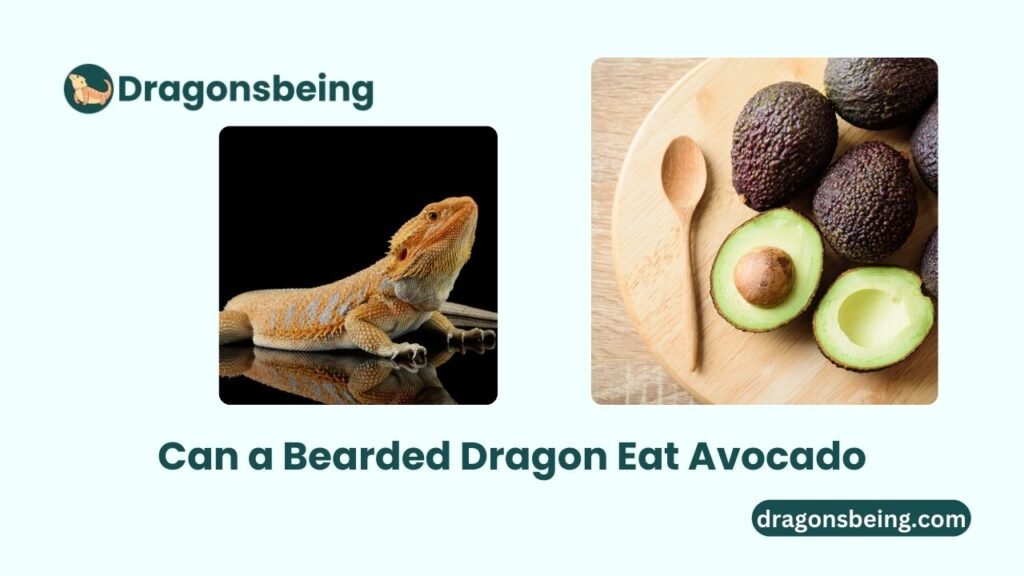Yes, bearded dragons can eat scrambled eggs in moderation. Eggs provide protein but should not replace their main diet.
Bearded dragons, native to Australia, are popular pets known for their unique dietary needs.
While they primarily thrive on a diet of insects and vegetables, many owners wonder about including other foods. Scrambled eggs often come up as a potential treat.
This option offers a protein boost and can be a fun addition to their meals. However, moderation is key. Overfeeding eggs can lead to nutritional imbalances.
Understanding the right portions and preparation methods is crucial to keeping your bearded dragon healthy.
This guide explores the benefits and considerations of feeding scrambled eggs to your scaly friend, ensuring a balanced diet for optimal health.
The Basics Of Bearded Dragon Nutrition
Bearded dragons need a balanced diet for their health. This diet includes protein, vegetables, and fruits. Understanding their nutritional needs is crucial. Proper nutrition affects their growth and energy levels.
Essential Nutrients
Bearded dragons require several key nutrients:
- Protein: Essential for growth and energy.
- Calcium: Important for strong bones.
- Vitamins: Aids in immune function and overall health.
- Fiber: Supports digestion.
Protein sources include insects like crickets and mealworms. Vegetables like kale and collard greens provide essential vitamins. Fruits like berries can be given occasionally as treats.
Feeding Frequency And Portions
Young bearded dragons need to eat more often than adults:
| Age Group | Feeding Frequency | Portion Size |
|---|---|---|
| Hatchlings | 3-4 times a day | Small insects, 10-15% of body weight |
| Juveniles | 2 times a day | Medium insects, 10-15% of body weight |
| Adults | Once a day | Large insects, 10-20% of body weight |
Adjust portions based on activity level and health. Always provide fresh water. Monitor their weight regularly.
Eggs In A Bearded Dragon’s Diet
Bearded dragons can enjoy a variety of foods. One popular option is scrambled eggs. Eggs provide essential nutrients. They can be a tasty treat for your pet. Understanding the role of eggs is important.
Protein Content In Eggs
Eggs are rich in protein. Protein is vital for bearded dragons. It supports their growth and health. Here’s a quick look at the protein content:
| Type of Egg | Protein (per 100g) |
|---|---|
| Chicken Egg | 13g |
| Quail Egg | 13g |
| Duck Egg | 12g |
Eggs provide high-quality protein. This helps in muscle development. They can be a great addition to their diet.
Risks And Benefits
Feeding scrambled eggs has both risks and benefits. Understanding them helps in making the right choices.
- Benefits:
- High protein content
- Rich in vitamins
- Easy to digest
- Risks:
- Can cause obesity if overfed
- May lead to nutritional imbalance
- Eggs should be cooked thoroughly
Scrambled eggs can be a tasty treat. Always serve them in moderation. Balance is key to a healthy diet.
Can Bearded Dragons Eat Scrambled Eggs?
Bearded dragons can enjoy scrambled eggs in moderation. Eggs provide protein and nutrients. They should not be a main part of their diet.
Preparing Eggs For Bearded Dragons
Properly preparing scrambled eggs is essential. Here’s how:
- Start with fresh eggs.
- Crack the eggs into a bowl.
- Whisk the eggs until blended.
- Cook the eggs on low heat.
- Avoid adding salt, oil, or spices.
- Allow eggs to cool before serving.
Cut the scrambled eggs into small pieces. This makes it easier for your bearded dragon to eat.
Safe Feeding Practices
Follow these safe feeding practices:
- Serve eggs once a week.
- Limit portion size to a small amount.
- Monitor your bearded dragon’s health.
- Remove uneaten food after a few hours.
Watch for any signs of digestive issues. If your dragon shows discomfort, consult a vet.
Pros And Cons Of Scrambled Eggs For Bearded Dragons
Feeding scrambled eggs to bearded dragons has its ups and downs. Understanding these benefits and drawbacks helps ensure your pet’s health. Let’s explore the pros and cons.
Nutritional Advantages
Scrambled eggs offer several nutritional benefits for bearded dragons:
- High Protein Content: Eggs are rich in protein, essential for growth.
- Fatty Acids: They provide healthy fats needed for energy.
- Vitamins: Eggs contain vitamins like A and D, promoting overall health.
- Minerals: Important minerals like calcium support bone health.
Potential Health Concerns
While scrambled eggs can be beneficial, there are potential health issues:
- High Fat Content: Too much fat may lead to obesity.
- Imbalance: Over-reliance on eggs can create dietary imbalances.
- Digestive Issues: Some dragons may struggle to digest eggs.
- Eggshells: Avoid feeding eggshells. They may cause choking.
Moderation is key. Serve scrambled eggs as an occasional treat, not a staple.
Alternative Protein Sources For Bearded Dragons
Bearded dragons require a balanced diet. Protein is essential for their growth and health. While scrambled eggs are an option, other protein sources exist. Here are some great alternatives to consider.
Insects And Worms
Insects and worms provide rich protein. They are natural food sources for bearded dragons.
- Cricetid crickets: High in protein and easy to digest.
- Mealworms: Good source of protein but high in fat.
- Waxworms: Treats that are high in fat. Use sparingly.
- Superworms: Larger than mealworms and rich in protein.
Feeding insects is simple. Dust them with calcium or vitamin powder. This ensures balanced nutrition.
| Insect/Worm | Protein Content (%) | Fat Content (%) |
|---|---|---|
| Cricetid crickets | 60 | 20 |
| Mealworms | 50 | 30 |
| Waxworms | 25 | 50 |
| Superworms | 50 | 20 |
Commercial Diets
Commercial diets offer convenience. They come in pellets or freeze-dried forms. These diets are designed for bearded dragons.
- Pellets: Provide balanced nutrition. They often contain insects and vitamins.
- Freeze-dried options: Retain nutrients and are easy to store.
- Powdered diets: Can be mixed with water to create a paste.
Choose high-quality brands. Read labels carefully. Ensure protein and calcium levels are adequate.
How To Safely Introduce New Foods
Introducing new foods to your bearded dragon’s diet is essential. It adds variety and nutritional benefits. Scrambled eggs can be a tasty treat. Follow these steps to do it safely.
Monitoring Reactions
Watch your bearded dragon closely. Look for any signs of discomfort. Here are some things to check:
- Refusal to eat
- Vomiting or regurgitation
- Changes in behavior
- Diarrhea or unusual stools
Introduce scrambled eggs in small amounts. Start with just a tiny bite. Wait 24 hours before offering more. This helps to see how your dragon reacts.
Balancing The Diet
Scrambled eggs should not be the main meal. They are high in protein but low in other nutrients. Balance is key for a healthy diet. Here’s a simple table showing the food ratio:
| Food Type | Percentage of Diet |
|---|---|
| Vegetables | 50% |
| Fruits | 20% |
| Protein (like eggs) | 10% |
| Commercial Diet | 20% |
Offer scrambled eggs occasionally. Mix them with other foods. This keeps meals interesting and nutritious. Always ensure fresh water is available.
The Importance Of Variety In A Bearded Dragon’s Diet
Bearded dragons need a diverse diet for good health. Scrambled eggs can be a tasty treat, but they shouldn’t be the only food. Offering different foods helps meet their nutritional needs. Variety prevents boredom and encourages active eating habits.
Vegetables And Fruits
Vegetables and fruits are essential for a bearded dragon’s diet. They provide vitamins and minerals. Here are some safe options:
- Collard greens
- Kale
- Carrots
- Squash
- Blueberries
- Strawberries
Chop these foods into small pieces. This makes them easier to eat. Rotate different vegetables and fruits each week for balance.
Avoiding Nutritional Deficiencies
A balanced diet prevents nutritional deficiencies. Bearded dragons need protein, calcium, and vitamins. Over-reliance on one food can lead to health issues. A varied diet supports:
| Nutrient | Sources |
|---|---|
| Protein | Crickets, mealworms, scrambled eggs |
| Calcium | Leafy greens, calcium supplements |
| Vitamins | Fruits, vegetables |
Monitor your bearded dragon’s health. Adjust their diet based on their needs. Variety keeps them happy and healthy.
Common Mistakes In Feeding Bearded Dragons
Feeding bearded dragons can be tricky. Many owners make mistakes. These errors can harm their health. Understanding common feeding mistakes helps ensure a better diet.
Overfeeding
Overfeeding is a common mistake among bearded dragon owners. It’s easy to think more food means better health.
- Bearded dragons can become overweight.
- Obesity leads to health issues.
- Overfeeding can cause digestive problems.
Here are some tips to avoid overfeeding:
- Feed adult dragons every other day.
- Provide a variety of foods.
- Monitor portion sizes closely.
Inadequate Supplementation
Many owners forget to supplement their bearded dragons’ diets. Proper supplements are essential for growth and health.
Common supplements include:
| Supplement Type | Purpose |
|---|---|
| Calcium | Bone health and growth |
| Vitamin D3 | Helps absorb calcium |
| Multivitamins | Overall health support |
To ensure proper supplementation:
- Dust food with calcium powder regularly.
- Use multivitamins twice a month.
- Consult a vet for specific needs.
Frequently Asked Questions
Can Bearded Dragons Eat Scrambled Eggs Daily?
Feeding scrambled eggs daily isn’t advisable. Offer them occasionally for variety in their diet.
What Nutrients Do Scrambled Eggs Provide?
Scrambled eggs are rich in protein and fats, beneficial for growth and energy in bearded dragons.
How Should Scrambled Eggs Be Prepared?
Cook eggs without oil or seasoning. Scramble them lightly to ensure they’re easy for your dragon to eat.
Can Baby Bearded Dragons Eat Scrambled Eggs?
Yes, but in moderation. They require a balanced diet with more emphasis on insects and greens.
Are There Risks In Feeding Scrambled Eggs?
Overfeeding scrambled eggs can lead to obesity. Balance their diet with vegetables and insects for health.
What Other Foods Can Bearded Dragons Eat?
Bearded dragons thrive on insects, leafy greens, and fruits. Variety ensures they receive necessary nutrients.
Conclusion
Bearded dragons can safely enjoy scrambled eggs as an occasional treat. This protein-rich food offers nutritional benefits but should not replace their primary diet. Always serve eggs in moderation and ensure they’re well-cooked. Keeping your dragon’s diet varied will promote better health and happiness in your pet.

Hi, I’m Dr. Michelle Mayers, a veterinary professional with a deep passion for animal health and well-being. Over the years, I’ve dedicated my life to caring for animals and helping pet owners better understand their furry, feathered, or scaly companions. On my blog, Dragonsbeing, I share insights, tips, and stories that aim to educate, inspire, and connect with fellow animal lovers. Join me at Dragonsbeing as we explore the fascinating world of veterinary care and celebrate the special bond between humans and animals!


